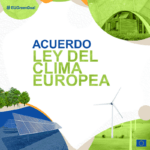A new technique based on machine learning can help scientists to more efficiently analyse ice cores. This could unlock new clues about our climatic past.
Ice cores – long cylinders of ice drilled and extracted from polar ice sheets or alpine glaciers – provide pristine records of past climates. Layers of deposit create a succession of climate snapshots, which can be traced back as far as 800 000 years ago. “The Earth’s climate can be revealed by detecting impurities fixed inside the ice,” explains ICELEARNING project coordinator Carlo Barbante from Ca’ Foscari University of Venice in Italy. “Soluble chemical compounds, atmospheric gases and insoluble particles emitted from deserts, forests and volcanoes are transported by winds and buried in the ice.” Standard methodological techniques to identify and quantify these particles can be very time-consuming. Samples need to be prepared in the lab, and each particle analysis typically requires a different preparation. Experts from different fields often look at the same sample, to identify what is of interest to their specific field (for example pollen grains, or volcanic ash).

CO2 the culprit in southern hemisphere temperature drop millions of years ago |
Analysing the past
The ICELEARNING project, which was undertaken with the support of the Marie Skłodowska-Curie Actions (MSCA) programme, sought to streamline this process of analysis. This was achieved by using a liquid flow microscopy instrument, called a FlowCam. Niccolò Maffezzoli, the MSCA fellow on the project, worked on the conceptual idea, translating it into a prototype. The FlowCam works by photographing all particles in an ice core sample, as it flows through the instrument. The key idea behind ICELEARNING was to then use deep neural networks / advanced machine learning to process, identify and classify differently impurities in an automated fashion. “Niccolò Maffezzoli came across the FlowCam instrument while visiting a laboratory at the University of Bergen,” explains Barbante. “Niccolò thought this could help ice core scientists to identify their respective particles at the same time, and build a framework that can bridge multiple fields.” The key to all this was developing a deep neural network capable of differentiating and classifying different types of particles, based on digital images. To do this, training data sets for each type of particle had to be collected. Tens of thousands of images were ‘fed’ to the network, to help it ‘learn’ how to distinguish between particle types. “We found that the network was able to classify particles with very high accuracy,” says Barbante. “We deployed it on samples from the Greenland Ice Core Project, GRIP, ice cores, which date from between 13 000 and 17 000 years ago.”
Accurate climate records
Barbante and his team made a number of discoveries. They were able to identify volcanic tephra particles from known volcanic eruptions, effectively demonstrating the potential of their technique for identifying past volcanic eruptions in ice core records. Furthermore, the presence of diatoms – single-celled algae organisms that live in the oceans – was identified in ice samples from the Peruvian Andes. Overall, ICELEARNING successfully demonstrated how this methodology could support laboratory analyses by cutting costs, time and effort. New lines of research of less studied particles – such as these diatoms – could also be opened up. “ICELEARNING was essentially a pilot study to demonstrate the feasibility of this idea,” adds Barbante. “Next steps include expanding our model to include other particles, and upscaling the size of samples used.” Barbante also hopes that the project can contribute towards the EU-funded Beyond EPICA Oldest Ice Core project, helping scientists to produce particle records beyond 1 million years ago. This could shed new light on numerous aspects of the Earth’s past climate.







Leave a Reply